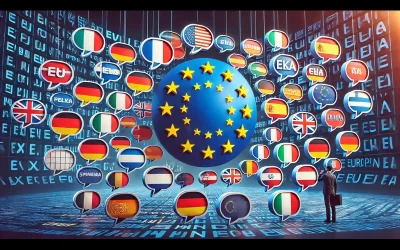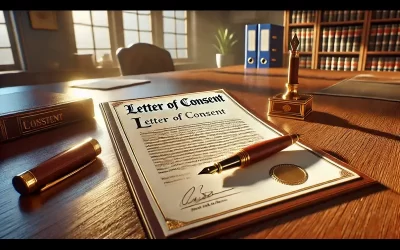The official language in the Netherlands is Dutch, West Germanic, and belongs to the larger Germanic language family. Dutch is the third most widely spoken Germanic language, following German and English. Dutch counts slightly different dialects: Hollandic, and Flemish are written somewhat alike, and in written form mainly, speakers between Belgium and the Netherlands understand each other quite easily. Learning Dutch is important if individuals and organizations want to forge relationships with this culturally affluent nation. It is also therefore advisable to learn Dutch and utilize Dutch translation services for applications when visiting these countries.
What Countries Speak Dutch?
Primarily spoken in the Netherlands, Dutch is also widely used in the northern region of Belgium, Suriname, and autonomous regions of the Kingdom of the Netherlands in the Caribbean, such as Aruba, Curaçao, and Sint Maarten. It is also possible to encounter people who know Dutch in some regions of Indonesia due to historical ties from the colonial period. This wide geographical distribution makes Dutch an important language globally. Although Dutch theoretically refers to a different language group, it is also known as Hollandic.
Certified Translation ServicesGet your documents translated and certified by a professional translator in 120+ languages with 24 hour delivery. Get a Quote |
Dutch in the Business World
The Netherlands has some of the busiest ports worldwide, lying between Europe and America. Even though small in land area, it is one of the world’s superpower countries, globally, by trade amounts in agriculture and technology. Hence, whichever sector that exports and imports, it has or will definitely interact with the Netherlands. In important communication and correspondence with companies and official institutions in the Netherlands, the initial steps are proficiency in the language, learning Dutch, and acquiring Dutch translation services.
Is it Essential to Learn Dutch?
One of the working languages of the European Union, Dutch is always in demand for international business and diplomatic purposes, for that matter. The leading position that the Netherlands hold in the modern global economy provides Dutch with an enduring popularity. Dutch is very renowned for providing immense career options to Dutch-speaking people due to the innovations in the technological agrarian and logistic spheres that the Netherlands has. Secondly, also being the language of the Flemish-speaking regions of Belgium, knowledge of this language proves beneficial in seeking professional as well as social opportunities in Belgium. Knowledge of Dutch aids in understanding and appreciating the local culture of Belgium, more particularly in any international city within Belgium, such as Brussels—a very important element for the people sharing their social lives with the locals. Furthermore, Dutch has quite a rich literary and cultural heritage. The one who learns it will have a wide collection of knowledge, from art and literature to history and philosophy, running from the veins of this European-based language.
What Is the Best Way to Learn Dutch?
Language exchange programs and tandem partners with native Dutch speakers open up room for more opportunities to orient their language skills. Watching Dutch movies, series, and music can help in the observation of natural language use and be of great use for practice in listening. Besides, practicing daily conversations and reading Dutch in written resources can speed up the process of learning the language.
Learning some basic grammar rules and the words most frequently used preparing for Dutch will be to your advantage. The first thing to do is to learn how to pronounce the alphabet and the sounds used. There are some differences in the sound systems of the Dutch language with Turkish and English language; thus, these pronunciation exercises you are working on now may seem difficult, at least for a while, and that is OK. Just give it some time.
Well, for one, while you learn Dutch, a gradual progression from basic everyday expressions and greetings can be very encouraging. In other words, you’ll be able to piece together very elementary greetings such as “Hello” (Hallo), “How are you?” (Hoe gaat het met u?), and “Thank you” (Dank u wel).
Professional Translation ServicesGet your documents translated and certified by a professional translator in 120+ languages with 24 hour delivery. Get a Quote |
What Are the Dutch Language Exams and Certificates?
For those who would rather learn Dutch and prove their language competence by obtaining an official document, many examinations and many certificates are offered, one of the most widespread is the Dutch Language Certificate Examination. The Exam assesses the language competence of Dutch learners in relation to the international standards and awards different level certificates. Prepared according to the criteria of the European Language Portfolio, this exam covers various language levels from basic (A2) to advanced (C1). Another important language exam, this time taken by people planning to finally live and work in the Netherlands, is the Inburgeringsexamen (Integration Exam) initiated by the Dutch government. Furthermore, the applicant does not need only knowledge of language but also the knowledge of Dutch society for this exam. Dutch language exams and certificates are an ideal way to document language skills and reach academic or job-related objectives. In the absence of such certificates, sworn translation services may be necessary while conducting official applications and correspondence.
Key Issues in Dutch Business Communication
These key issues in Dutch business communication will support your professional image while increasing your business relations. Appropriate utilization of language in your message confirms that your communication is clear and efficient, which strengthens mutual trust and respect. But it is important, at the same time, that sensibility to culture should creep in—business culture with reference to Dutch-speaking areas, so that there is no misinterpretation and the working atmosphere is wholesome. On this plane also, Dutch language resources can be of varied forms:. This is where corporate training and Dutch translation services come in handy to help you know more about the language and the background. Knowledge of the language helps one master the language details and the business standards taking place, whereas the translation services guarantee that your correspondence in print is professional. These resources will make sure that all of your business correspondence will be conducted in the highest quality and most accuracy, functioning as a facilitator for you to be successful in international business relations.
Make yourself recognized as being the proper one by following the suggestions below, as you communicate when you are a Dutch business correspondent. One of the biggest steps to be taken in order to achieve a proper image and be respected in business life is correct and effective communication.
 Rana Maalouf
Rana Maalouf

